Nori Mouse IL-10 ELISA Kit
$461.00 – $832.00
This ELISA kit is for quantification of IL-10 in mouse. This is a quick ELISA assay that reduces time to 50% compared to the conventional method, and the entire assay only takes 3 hours. This assay employs the quantitative sandwich enzyme immunoassay technique and uses biotin-streptavidin chemistry to improve the performance of the assays. An antibody specific for IL-10 has been pre-coated onto a microplate. Standards and samples are pipetted into the wells and any IL-10 present is bound by the immobilized antibody. After washing away any unbound substances, a detection antibody specific for IL-10 is added to the wells. Following wash to remove any unbound antibody reagent, a detection reagent is added. After intensive wash a substrate solution is added to the wells and color develops in proportion to the amount of IL-10 bound in the initial step. The color development is stopped, and the intensity of the color is measured.
Alternative names for IL-10: IL10, interleukin 10, cytokine synthesis inhibitory factor (CSIF),
This product is for laboratory research use only not for diagnostic and therapeutic purposes or any other purposes.
- Description
- How Elisa Works
- Product Citation
- Reviews (0)
Description
Nori Mouse IL-10 ELISA Kit Summary
Alternative names for IL-10: IL10, interleukin 10, cytokine synthesis inhibitory factor (CSIF),
| Assay Type | Solid Phase Sandwich ELISA |
| Format | 96-well Microplate or 96-Well Strip Microplate |
| Method of Detection | Colorimetric |
| Number of Targets Detected | 1 |
| Target Antigen Accession Number | P18893 |
| Assay Length | 3 hours |
| Quantitative/Semiquantitative | Quantitative |
| Sample Type | Plasma, Serum, Cell Culture, Urine, Cell/Tissue Lysates, Synovial Fluid, BAL, |
| Recommended Sample Dilution (Plasma/Serum) | No dilution for sample <ULOQ; sufficient dilution for samples >ULOQ |
| Sensitivity | 6 pg/mL |
| Detection Range | 31.25-2000 pg/mL |
| Specificity | Mouse IL-10 |
| Cross-Reactivity | < 0.5% cross-reactivity observed with available related molecules, < 50% cross-species reactivity observed with species tested. |
| Interference | No significant interference observed with available related molecules |
| Storage/Stability | 4 ºC for up to 6 months |
| Usage | For Laboratory Research Use Only. Not for diagnostic or therapeutic use. |
| Additional Notes | The kit allows for use in multiple experiments. |
Standard Curve
Kit Components
1. Pre-coated 96-well Microplate
2. Biotinylated Detection Antibody
3. Streptavidin-HRP Conjugate
4. Lyophilized Standards
5. TMB One-Step Substrate
6. Stop Solution
7. 20 x PBS
8. Assay Buffer
Other Materials Required but not Provided:
1. Microplate Reader capable of measuring absorption at 450 nm
2. Log-log graph paper or computer and software for ELISA data analysis
3. Precision pipettes (1-1000 µl)
4. Multi-channel pipettes (300 µl)
5. Distilled or deionized water
Protocol Outline
1. Prepare all reagents, samples and standards as instructed in the datasheet.
2. Add 100 µl of Standard or samples to each well and incubate 1 h at RT.
3. Add 100 µl of Working Detection Antibody to each well and incubate 1 h at RT.
4. Add 100 µl of Working Streptavidin-HRP to each well and incubate 20 min at RT.
5. Add 100 µl of Substrate to each well and incubate 5-30 min at RT.
6. Add 50 µl of Stop Solution to each well and read at 450 nm immediately.
Background:
IL-10, also known as cytokine synthesis inhibitory factor (CSIF), is an anti-inflammatory cytokine that is produced by T cells, NK cells, mast cells and macrophages (1,2,3). It is capable of inhibiting synthesis of pro-inflammatory cytokines like IFN-γ, IL-2, IL-3, TNFα and GM-CSF made by cells such as macrophages and regulatory T-cells. IL-10 also displays potent abilities to suppress the antigen presentation capacity of antigen presenting cells. IL-10 initiates signal transduction by binding to a cell surface receptor complex consisting of IL-10 RI and IL-10 RII (1). Binding of IL-10 leads to the activation of Jak1 and Tyk2, which phosphorylates Stat-3 (1,4). The anti-inflammatory activity of IL-10 is due to its ability to block signaling through other cytokine receptors, notably IFNγ receptor, by upregulating expression of SOCS-1 (1,4). In addition, IL-10 promotes T cell tolerance by inhibiting tyrosine phosphorylation of CD28 (5,6). IL-10 is an important negative regulator of the immune response, which allows for maintenance of pregnancy (1). In contrast, increased IL-10 levels contribute to persistent Leishmania major infections (7).
References
- Pestka, S. et al. (2004) Immunol Rev 202, 8-32.
- Akuffo, H. et al. (1999) Clin Exp Immunol 117, 529-34.
- Grimbaldeston MA, et al (2007). Nat. Immunol. 8 (10): 1095–104.
- O’Shea, J.J. and Murray, P.J. (2008) Immunity 28, 477-87.
- Akdis, C.A. and Blaser, K. (2001) Immunology 103, 131-6.
- Akdis, C.A. et al. (2000) FASEB J 14, 1666-8.
- Von Stebut, E. (2000) Eur J Dermatol 17, 115-22.
Be the first to review “Nori Mouse IL-10 ELISA Kit”
You must be logged in to post a review.
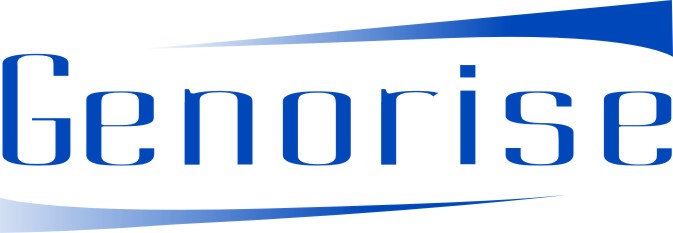






















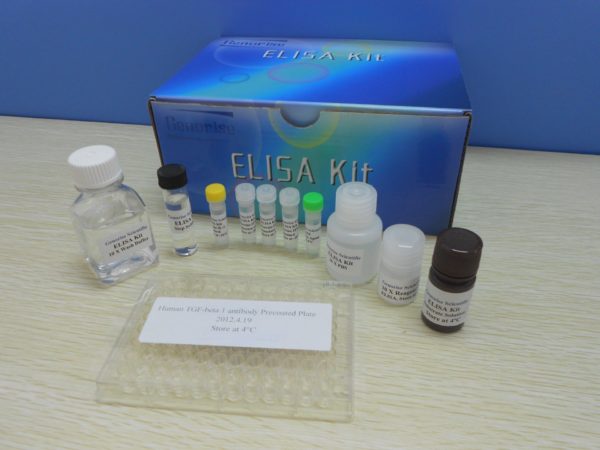
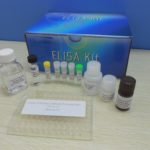
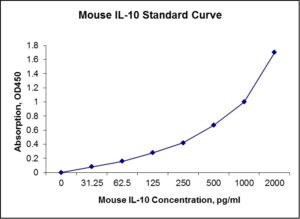
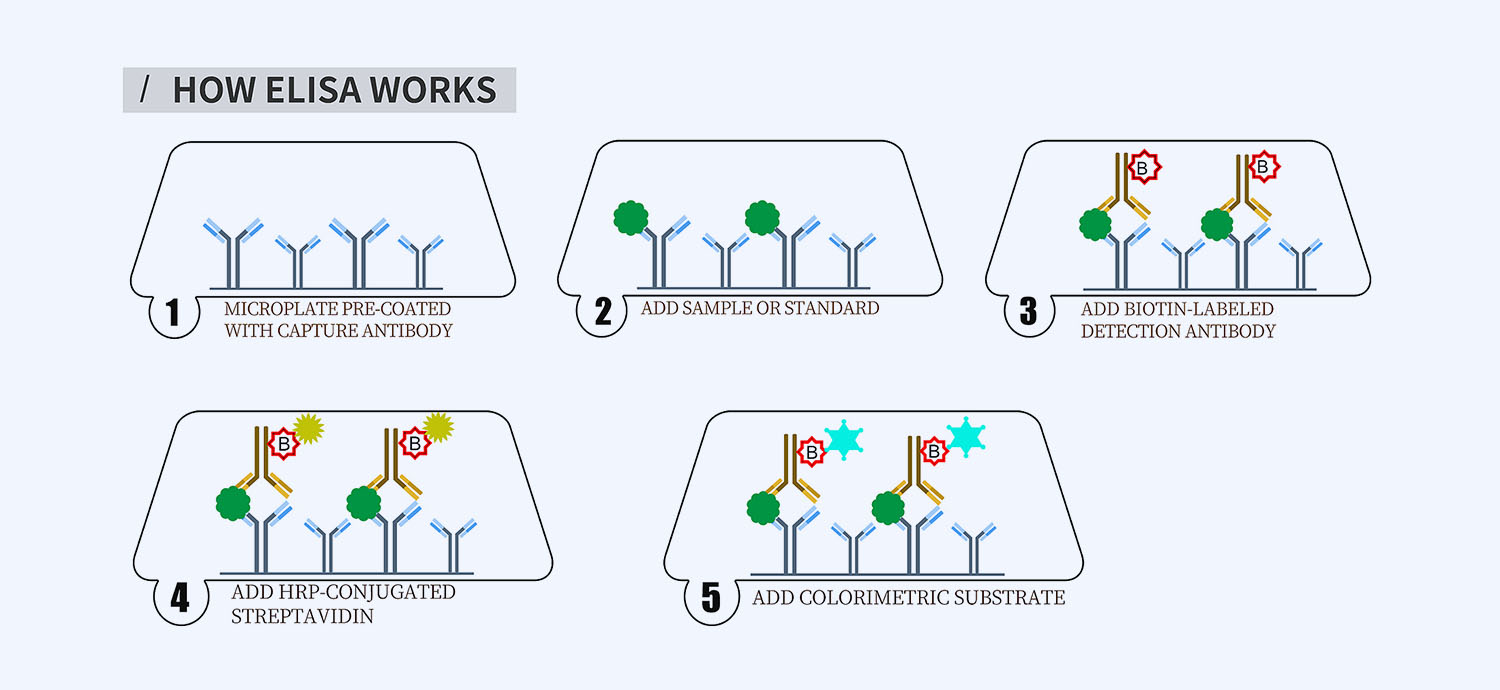
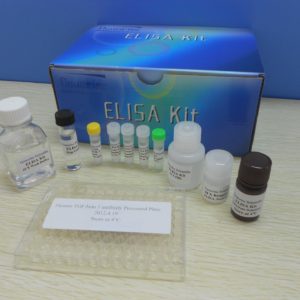
Reviews
There are no reviews yet.